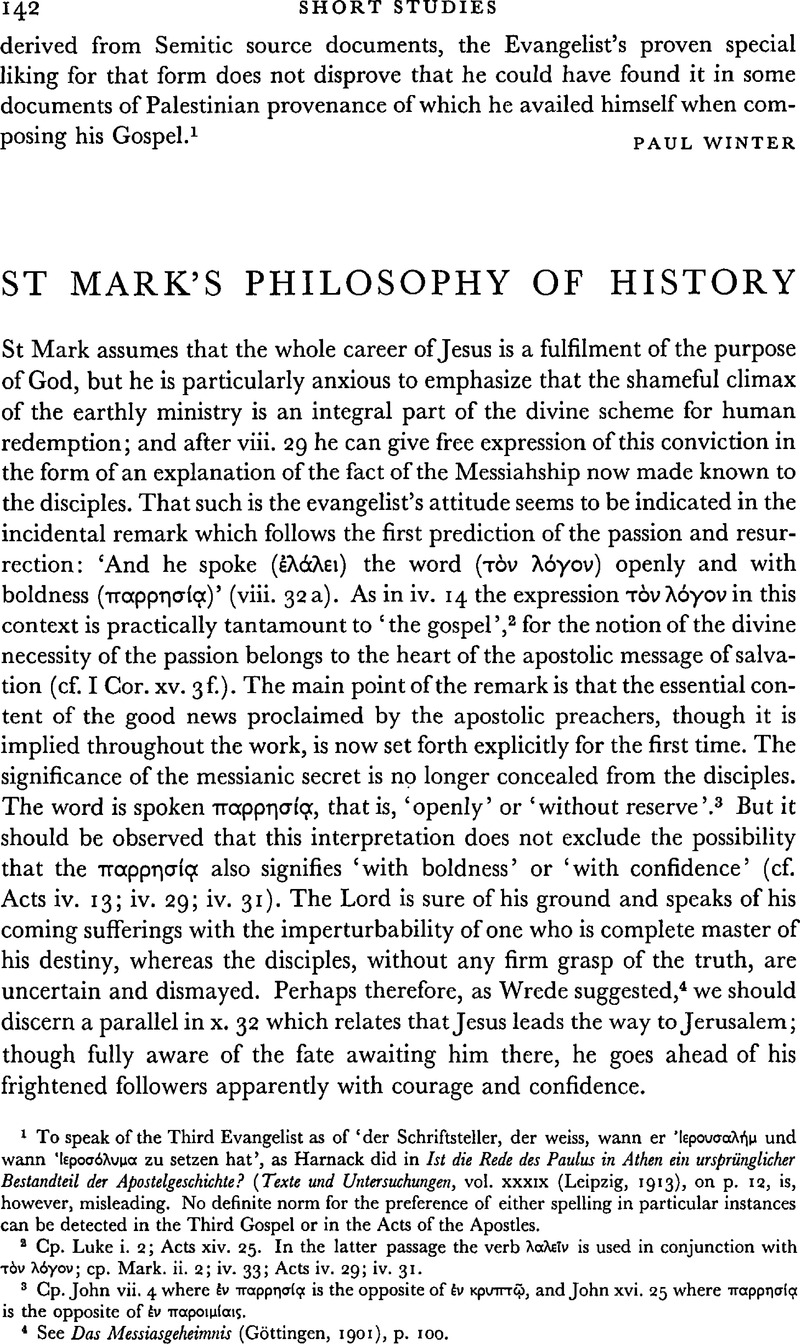Published online by Cambridge University Press: 05 February 2009

page 142 note 1 To speak of the Third Evangelist as of ‘der Schriftsteller, der weiss, wann er ιɛρσνσαλνήμ und wann ιɛροσóλνμα zu setzen hat’, as Harnack did in Ist die Rede des Paulus in Athen ein ursprünglicher Bestandteil der Apostelgeschichte? (Texte und Untersuchungen, vol. xxxix (Leipzig, 1913), on p. 12, is, however, misleading. No definite norm for the preference of either spelling in particular instances can be detected in the Third Gospel or in the Acts of the Apostles.
page 142 note 2 Cp. Luke i. 2; Acts xiv. 25. In the latter passage the verb λαλɛíν is used in conjunction with τòν λóγον cp. Mark. ii. 2; iv. 33 Acts iv. 29 iv. 31.
page 142 note 3 Cp. John vii. 4 where ⋯ν παρρησíα is the opposite of ⋯ν ϰρνπτῷ, and John xvi. 25 where παρρησíα is the opposite of ⋯ παροιμìαις.
page 142 note 4 See Das Messiasgeheimnis (Göttingen, 1901), p. 100.
page 143 note 1 In I Cor. ii. 6ff., if the phrase ‘the rulers of this age’ refers to demonic powers, St Paul is at. -variance with St Mark, who holds that the demons do recognize the divine nature of Jesus and that it is the Jews (he does not mention the demons in this connexion) who are to be held responsible for the crucifixion. But it must be noted that on certain occasions St Paul, too, can blame the Jews for the death of Jesus (cf. I Thess. ii. 14f.).
page 144 note 1 This may be illustrated by comparing St Mark's account of Jesus' grief in Gethsemane (xiv. 32 ff.) with the short statement in John xii. 27. There is no suggestion in John xviii. 1 if. that Jesus was in distress of soul immediately before his arrest.
page 145 note 1 In St Luke's version of the story, on the other hand, Moses and Elijah converse with Jesus concerning the ‘exodus’ which he is about to accomplish in Jerusalem (Luke ix. 31).
page 145 note 2 Of course the teaching of xiii. 5ff. probably owes something to the Jewish conception of the Messiah's birth-pangs (cp. v. 8c); for the Jewish doctrine, cf. Moore, G. F., Judaism (Harvard, 1927–1930), II, pp. 360 ff.Google Scholar
page 146 note 1 This expression is borrowed from Dibelius' penetrating discussion of the christologies of St Paul and of the Evangelists; see his From Tradition to Gospel (London, 1934), p. 299.